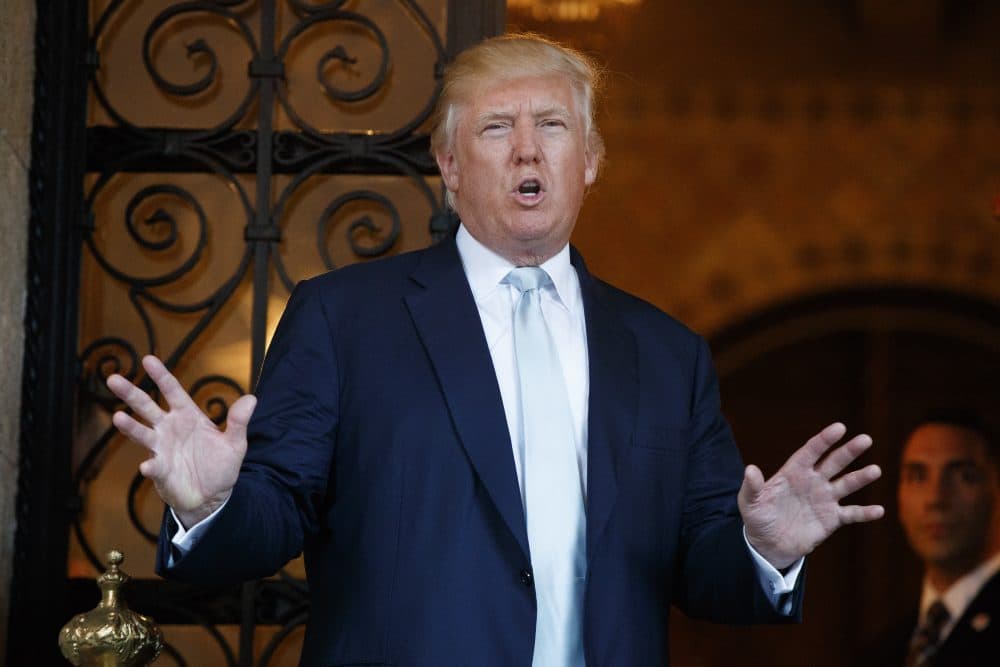Advertisement
Stop Making Sense: Why Self-Deception And Donald Trump Aren't Going Away (Anytime Soon)

COMMENTARY
The other day, I saw a flyer affixed to a light pole in a Staples parking lot announcing that Jesus was returning, the Rapture was imminent, and life on earth would end on October 28, 1992. The leaflet was in pristine condition and could not have been hanging there for 24 years. No, somebody put it up just recently, perhaps inspired by Donald Trump’s election, the Arctic heat wave, or transgender-friendly bathrooms. After all, apocalyptic thinking is in the air.
1992 wasn’t the first time in the 20th century that the promised day of reckoning had failed to materialize. On December 20, 1954, a small group of people who called themselves The Seekers sat in a house in Chicago, anxiously watching the clock. They were waiting for creatures from the imagined planet of Clarion to arrive at midnight and escort them to a spacecraft on which they would flee a flood that would destroy the earth at 7 a.m. the next day.
Alas, when the clock struck 12, no visitor had arrived. Someone in the group noticed that the clock in another room read only 11:55. Clearly the one they were watching was wrong; it wasn’t yet midnight. But when the clock struck 4 a.m. and their savior had yet to walk through the door, members of the group began to weep and vainly struggled to explain why they’d been abandoned. By 4:45, they had their answer: According to a message received via automatic writing by the group’s leader, God had called off the cataclysm. Thanks to the faith of this small group of believers, the planet was spared.
Though a fable, this story is not a fiction. It’s the central case study in "When Prophecy Fails," a path-breaking study of how people cope with cognitive dissonance, the stress that results when we are presented with information that conflicts with our existing beliefs, ideas or values. And its relevance both to this election and its aftermath is haunting.
So how do I steel my resolve without clouding my vision? Will I recognize and be willing to embrace Trump-initiated positive change in the unlikely event that comes about?
Managers of both presidential campaigns — especially Trump’s — understood that humans not only try to reduce cognitive dissonance, but to take in and evaluate facts in such a way as to confirm our existing beliefs. And, as Maria Konnikova explains in a recent New Yorker article, it’s why “… Trump supporters remain supportive no matter what evidence one puts to them — and why Trump’s opponents are unlikely to be convinced of his worth even if he ends up doing something actually positive.” Psychologist Dan Kahan has documented a similar phenomenon, which he refers to as “identity-protective cognition,” which causes people to “process information in a way that protects their idea of themselves. Incongruous information is discarded, and supporting information is eagerly retained.”
That’s why when The Seekers’ prophecy of global destruction and personal salvation wasn’t realized, they didn’t question their own beliefs or the misconceptions on which they were based. No, they doubled down, proselytizing with greater fervor than they had before the non-events of December 20.
I’ve been thinking about this outcome as the new administration prepares to take office. I’m wondering whether Trump supporters perceive his cabinet appointees as draining the swamp. I’m curious to see what rationale they’ll offer if manufacturing jobs, once lost to cheaper foreign labor, continue to be lost to automation, or when the income gap continues to widen. And I don’t even want to know what narrative they’ll construct when, despite Trump’s blustering Islamophobia, there is another terrorist attack on U.S. soil. Will they dig in and blame their lack of salvation on a Democratic minority in Congress? On the press?
But I also recognize that I’m subject to the same biases and self-deception. So how do I steel my resolve without clouding my vision? Will I recognize and be willing to embrace Trump-initiated positive change in the unlikely event that comes about?
I’m not sure. I just know that it’s well past midnight and no spaceship is en route to whisk any of us away from the hatred and vitriol that’s replaced civic discourse. But our survival is still at stake. We have to learn from the disconnect between our beliefs and the wildly diverse realities of life for the people of this country. We can’t rely on delusion to reconcile the conflict.
